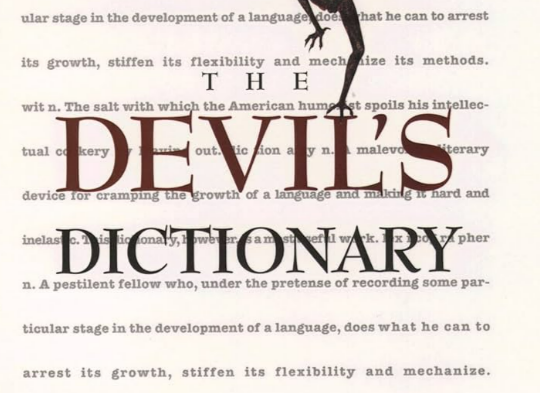Chapter K
byChapter K opens with an imagined history of the letter itself, tying K to an ancient culture known as the Cerathians, who Bierce claims once flourished in the land of Smero. The letter’s modern form, according to his mock-history, emerged from a catastrophe—the collapse of a sacred temple—which transformed the Cerathian character “Klatch” into a symbol of loss and ruin. Bierce connects the shape of the letter to tragedy, humorously suggesting that the alphabet itself bears the weight of forgotten disaster. His account isn’t historical but satirical, using fabricated etymology to mock how societies mythologize language and its origins. Through this, he satirizes both linguistic scholarship and humanity’s need to link meaning to myth.
Moving on to Keep, Bierce reflects on the futility of possession, especially in death. He points out that while people claim to “keep” their reputations, treasures, or legacies, none of these endure once life ends. This definition captures the irony of permanence, where the very word suggests control that vanishes with mortality. He uses this to show how language conceals reality, transforming powerlessness into pride. Similarly, Kill is distilled into a bleakly comical definition: to create a vacancy without providing a replacement. Bierce cuts through the moral and legal debates around violence, instead exposing the hollow practicality of the act. It’s not punishment or justice—but administration.
The word Kindness receives no mercy either. Rather than virtue, it’s framed as a strategy—a calculated move designed to soften the recipient for future exploitation. Acts of kindness, Bierce implies, are often the first step in securing leverage. His definition doesn’t deny genuine goodwill exists, but questions whether it’s the rule or the exception. In Kilt, he turns his attention to cultural attire, gently mocking the romanticism surrounding tradition. By depicting it as “worn by Scotchmen in America,” he comments on the awkward transplant of heritage and the theatrical way people display their roots.
In King, Bierce directs his full satire at monarchy, defining the ruler not as noble, but as a figure propped up by ceremony and illusion. The king, in his eyes, embodies absurdity—someone adorned with power but often lacking wisdom or necessity. This entry lays bare the theatrical foundations of royalty, where symbolism outweighs substance. King’s Evil, once believed to be curable by royal touch, becomes an entry that questions the logic behind leadership and faith. Bierce draws a line from old superstition to modern political rituals, such as the handshake, mocking how obsolete traditions are repackaged as respectability. The transition from sacred touch to political gesture speaks volumes about how authority is performed, not earned.
With Kiss, Bierce strips away romance and instead paints it as a confusing intersection of impulse and tradition. He calls it a poetic fabrication—something celebrated for centuries yet still debated in origin and meaning. The kiss is both sacred and trivial, a symbol that speaks louder than it should. His definition reminds us that what’s deeply emotional may also be hollow repetition. Kleptomanic gets reframed not as a sickness of the poor, but a privilege of the rich. Bierce observes that theft becomes “kleptomania” only when the criminal is socially acceptable. Through this, he exposes how language protects the powerful by reframing crime as compulsion.
The chapter closes with Knight, a title once tied to valor but now reduced to ceremony. Bierce describes how nobility, once earned through bravery, now gets distributed so widely that even dogs are knighted. This humorous exaggeration illustrates how prestige is diluted when granted without merit. His commentary reflects on the erosion of standards—where symbols remain, but meaning has vanished. In this entry, Bierce isn’t mocking chivalry itself, but the modern institutions that imitate its form without embracing its values.
Each definition in this chapter builds on the theme that language is a mirror—sometimes distorted, sometimes unflattering, but always revealing. Through irony and invention, Bierce encourages readers to question the meaning behind familiar words. His definitions are not meant to replace the dictionary’s, but to deepen our understanding of how language reflects human frailty. With each entry under K, he reminds us that words, like people, are often more complicated than they appear.

